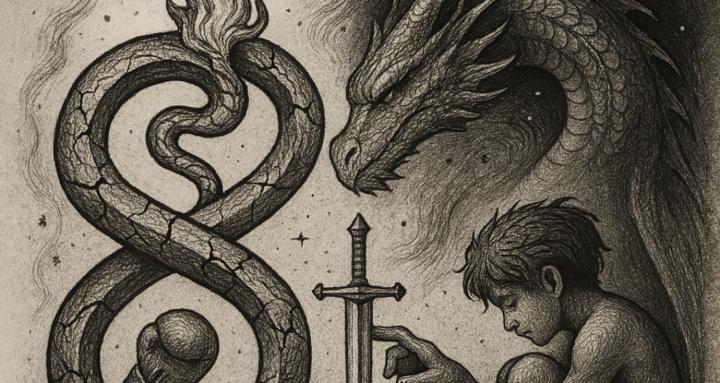Aug 20 • General discussion
Autumn Leaves
She walked in with a quiet presence, reserved but not unsure. There was a shyness to her, but not the kind that shrinks away — well, maybe a little. It was self-contained, unbothered, like she had no need to explain herself to the world, and I envied that. I knew, immediately, I was losing.
I stole glances through the corner of my eye, savoring fleeting moments of unnoticeable contact as she moved about. Just as I was about to resign myself to another wasted chance, my new buddy from the French countryside, Quinton, asked her — as if it were the most natural thing in the world — if she’d like to join us for dinner. To my surprise, she looked at us and agreed without hesitation.
Somehow, Quinton stepped away, and suddenly it was just me and her in the cramped ground floor of the hostel — a narrow Japanese house where the kitchen, dining, and living all blurred into one small room.
Forced closer than normalcy dictates, we stood facing each other. The air was thick with unspoken words. I took a slow breath, sweat forming on my brow as I searched for an opening.
Alright. Time to speak.
“Hey.”
Her gaze held me — cool, steady, and open — warming my chest with unexpected ease. My words fumbled, my thoughts scrambled, but somehow, between mismatched steps and scattered pauses, the space softened. A shared laugh here, a lingering glance there.
The tension melted into something gentle. Like sunlight filtering through autumn leaves.
She could go from understated and contemplative to laughing like an idiot with me on a crowded train, trying to explain the worst curse words we knew. Gaesekki and cnts.* I can still hear that surprised, breathless laugh, like even she didn’t expect to find something so funny.
One night, we huddled under the narrow roof gutter of a 7/11, seeking shelter from the rain. Fat drops slipped past the overhang, dotting our clothes, sliding down our skin. The neon glow barely reached us. The hum of vending machines, the hiss of passing cars — silence thick between.
I said it first.“Let’s meet again.”
She tilted her head, considering. Then lifted her pinky.“Promise?”
I hooked mine around hers. Her hand was warm despite the rain’s chill. I almost let go — but she hesitated. Not out of reluctance, but like someone who knew what promises could cost.
“In Korea,” she murmured, “if your thumbs touch, the promise is stronger.”She pressed her thumb against mine.
Maybe that hesitation wasn’t disinterest. Maybe she wanted to believe in it too much, and that scared her.
For a second, the world quieted. The press of her thumb. The quiet certainty in her voice. Childish? Maybe. But at that moment, I wanted to believe in it.
Neither of us let go first.
The three of us spent four days exploring Fukuoka and the surrounding areas. Those days felt like redemption after months of inaction.
I’d been to Fukuoka before, twice, with family. Back then, I was a painfully self-conscious kid, standing beneath the torii gate at Dazaifu Shrine, surrounded by beauty but feeling alone. My family was there, yet I yearned for connection — for someone who really saw me.
Now, by some strange alignment, I returned without planning it. Same places, same streets — but I wasn’t alone. I was laughing, taking stupid photos, feeling lighter. Something had looped. Closed. Healed.
Even the rooftop garden at Fukuoka Station struck me. I’d once stood there wishing not to be alone. Now I wasn’t. Karma, God, or old spirits watching — it felt like a nod from the universe that maybe I was becoming the person that lonely kid hoped to be.
On our last afternoon, before Gauel’s flight and Quinton’s Shinkansen south, we biked toward a distant tower and ended up at an industrial wharf. To the left, cranes unloaded silent cargo giants. To the right, a quiet little temple stood humble but eternal.
We shared a smoke. Took silly photos. When the light faded, we turned our bikes around, warm from the sun, warmer still from laughter.
Back at the hostel porch, three worn steps and tiny circle chairs beneath us, we sat exhausted from biking. The quiet hum of the backstreet surrounded us. I grinned for no reason other than the golden light.
But her unreadable expression returned. She’d been open earlier, present. Now it was like she’d already severed the thread between us. I looked away, pretending not to notice.
I stole another glance, searching for something that told me she felt it too. But I found only that same wall.
And yet, I knew better now. Or at least pretended to. Beneath her stony exterior was someone who dissolved into laughter over ridiculous things, who once recommended a book I assumed would be poetic, only for it to turn out hilariously erotic.
Her flight was just hours away. Our last moments, sitting on the sidewalk, stretching time.
My grin twisted further, impossible to ignore.“What is it?”
“Nothing.”
“Just tell me.”
“I’m older than you. Call me Oppa.”
She took a drag off her cigarette. I did too.
“If you told me earlier, it’d have been easier… I’ve only called you your name this whole time.” She exhaled smoke.
“I’ve never had an Oppa before.”
My eyebrows shot up.
Never?
She shrugged, lips curling.
“Fine.”
She flicked her ash, let the silence stretch.
“Are you ready… Oppa?”
A shiver of pleasure lit up my skin. It wasn’t a big deal. But it still felt good. The expression on my face was, unfortunately, probably the same one commonly worn by the village idiot.
Just as my emotions settled, she leaned in, voice teasing.
“One more time… Oppa.”
“Last time — Oppa…”
I should’ve known. That was the last time.
We kept in touch for a while. I even made it to Korea. But about a month before my departure, she vanished. No explanation. Just gone.
I tortured myself over why. Still do sometimes. But maybe it wasn’t rejection. People don’t always disappear because they feel nothing. Sometimes they vanish because they feel too much.
Looking back, I let delusion seep into reality, weighing something light until it broke — turning affection into pressure, closeness into expectation.
It hurts because I would’ve been content just sharing smoke with her, laughing like friends. But my own inexperience pressed false expectations onto something never mine to hold. Like clutching water, the tighter my grip, the faster she was gone.
I wandered aimlessly the winter Daejeon night streets, breath fogging in the cold.
Passing a poke shop, I froze. She’d once mentioned working at one. A silhouette moved inside. My heart twisted.
I lit a cigarette, waiting. The door swung open. A woman stepped out with trash.
Not her. Of course not.
This wasn’t a movie. This was real life.
I remembered the small cuts on her hands, the dryness from winter work. The tube of medicine I once bought in Japan for her still sat buried in my luggage — a relic of the me that still believed.
And that was it. No grand reunion. No fated encounter. Just a prolonged goodbye to something that never existed.
From the start, I knew she belonged to a world out of my reach. She was searching for something — and it wasn’t me. Still, I imagined a future with her anyway, because I needed something to keep me moving. Even if improbable. Even if I saw the red flags. I chose a beautiful fantasy over the truth.
Now, the strength I once gained from that illusion had transformed into dread and loneliness.
How can someone grieve what never was?
Goodbye, Gauel. (That’s a lie — she’ll stay with me a while longer.)
Fin.
0
0 comments
powered by

skool.com/bond-details-3625
A vault of fragments. Discipline and chaos under one roof. Step in, share your voice, and leave sharper than you came.
Suggested communities
Powered by
